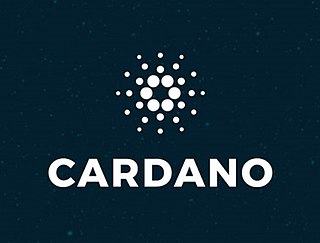Related Research Articles

The Gödel Prize is an annual prize for outstanding papers in the area of theoretical computer science, given jointly by the European Association for Theoretical Computer Science (EATCS) and the Association for Computing Machinery Special Interest Group on Algorithms and Computational Theory. The award is named in honor of Kurt Gödel. Gödel's connection to theoretical computer science is that he was the first to mention the "P versus NP" question, in a 1956 letter to John von Neumann in which Gödel asked whether a certain NP-complete problem could be solved in quadratic or linear time.

Philip Lee Wadler is a UK-based American computer scientist known for his contributions to programming language design and type theory. He is holds the position of Personal Chair of theoretical computer science at the Laboratory for Foundations of Computer Science at the School of Informatics, University of Edinburgh. He has contributed to the theory behind functional programming and the use of monads; and the designs of the purely functional language Haskell and the XQuery declarative query language. In 1984, he created the Orwell language. Wadler was involved in adding generic types to Java 5.0. He is also author of "Theorems for free!", a paper that gave rise to much research on functional language optimization.

Christos Charilaos Papadimitriou is a Greek theoretical computer scientist and the Donovan Family Professor of Computer Science at Columbia University.
ACM SIGACT or SIGACT is the Association for Computing Machinery Special Interest Group on Algorithms and Computation Theory, whose purpose is support of research in theoretical computer science. It was founded in 1968 by Patrick C. Fischer.

The Donald E. Knuth Prize is a prize for outstanding contributions to the foundations of computer science, named after the American computer scientist Donald E. Knuth.
The k-server problem is a problem of theoretical computer science in the category of online algorithms, one of two abstract problems on metric spaces that are central to the theory of competitive analysis. In this problem, an online algorithm must control the movement of a set of kservers, represented as points in a metric space, and handle requests that are also in the form of points in the space. As each request arrives, the algorithm must determine which server to move to the requested point. The goal of the algorithm is to keep the total distance all servers move small, relative to the total distance the servers could have moved by an optimal adversary who knows in advance the entire sequence of requests.

Mihalis Yannakakis is professor of computer science at Columbia University. He is noted for his work in computational complexity, databases, and other related fields. He won the Donald E. Knuth Prize in 2005.
Algorithmic game theory (AGT) is an area in the intersection of game theory and computer science, with the objective of understanding and design of algorithms in strategic environments.
The Annual ACM Symposium on Theory of Computing (STOC) is an academic conference in the field of theoretical computer science. STOC has been organized annually since 1969, typically in May or June; the conference is sponsored by the Association for Computing Machinery special interest group SIGACT. Acceptance rate of STOC, averaged from 1970 to 2012, is 31%, with the rate of 29% in 2012.

Constantinos Daskalakis is a Greek theoretical computer scientist. He is a professor at MIT's Electrical Engineering and Computer Science department and a member of the MIT Computer Science and Artificial Intelligence Laboratory. He was awarded the Rolf Nevanlinna Prize and the Grace Murray Hopper Award in 2018.
In algorithmic game theory, a succinct game or a succinctly representable game is a game which may be represented in a size much smaller than its normal form representation. Without placing constraints on player utilities, describing a game of players, each facing strategies, requires listing utility values. Even trivial algorithms are capable of finding a Nash equilibrium in a time polynomial in the length of such a large input. A succinct game is of polynomial type if in a game represented by a string of length n the number of players, as well as the number of strategies of each player, is bounded by a polynomial in n.

Joseph S. B. Mitchell is an American computer scientist and mathematician. He is Distinguished Professor and Department Chair of Applied Mathematics and Statistics and Research Professor of Computer Science at Stony Brook University.

Richard Ryan Williams, known as Ryan Williams, is an American theoretical computer scientist working in computational complexity theory and algorithms.

Mordechai M. "Moti" Yung is a cryptographer and computer scientist known for his work on cryptovirology and kleptography.

Timothy Avelin Roughgarden is an American computer scientist and a professor of Computer Science at Columbia University. Roughgarden's work deals primarily with game theoretic questions in computer science.

Cardano is a public blockchain platform. It is open-source and decentralized, with consensus achieved using proof of stake. It can facilitate peer-to-peer transactions with its internal cryptocurrency, ADA.

Ouroboros is a family of proof-of-stake consensus protocols used in the Cardano and Polkadot blockchains. It can run both permissionless and permissioned blockchains.
In economics, a budget-additive valuation is a kind of a utility function. It corresponds to a person that, when given a set of items, evaluates them in the following way:
Aggelos Kiayias is a Greek cryptographer and computer scientist, currently a professor at the University of Edinburgh and the Chief Science Officer at Input Output Global, the company behind Cardano.
Amir Ronen is an Israeli computer scientist.
References
- ↑ Elias Koutsoupias at the Mathematics Genealogy Project
- 1 2 3 Personal website , retrieved 2019-07-07
- ↑ "Elias Koutsoupias". Simons Institute for the Theory of Computing.
- ↑ Koutsoupias & Papadimitriou (1999).
- ↑ "Gödel Prize, ACM". European Association for Theoretical Computer Science.
- ↑ "Faculty Associate Receives 2012 Goedel Prize". University of California, Berkeley.
- ↑ Koutsoupias, Elias (6 February 2019). "Elias Koutsoupias: Game Theory 1/2 🎲 CERN". www.youtube.com/watch?v=Fshzxy9LdFI. CERN Lectures. Retrieved 22 August 2019.
- ↑ Aggelos Kiayias, Elias Koutsoupias, Maria Kyropoulou and Yiannis Tselekounis (2016) “Blockchain Mining Games”, in EC '16: Proceedings of the 2016 ACM Conference on Economics and Computation, July 2016, pages 365–382. https://dl.acm.org/doi/10.1145/2940716.2940773
- ↑ Lars Brünjes; Aggelos Kiayias; Elias Koutsoupias; Aikaterini-Panagiota Stouka (2020) “Reward Sharing Schemes for Stake Pools”, 2020 IEEE European Symposium on Security and Privacy (EuroS&P). https://ieeexplore.ieee.org/abstract/document/9230398
- ↑ IOHK team page, https://iohk.io/en/team/elias-koutsoupias